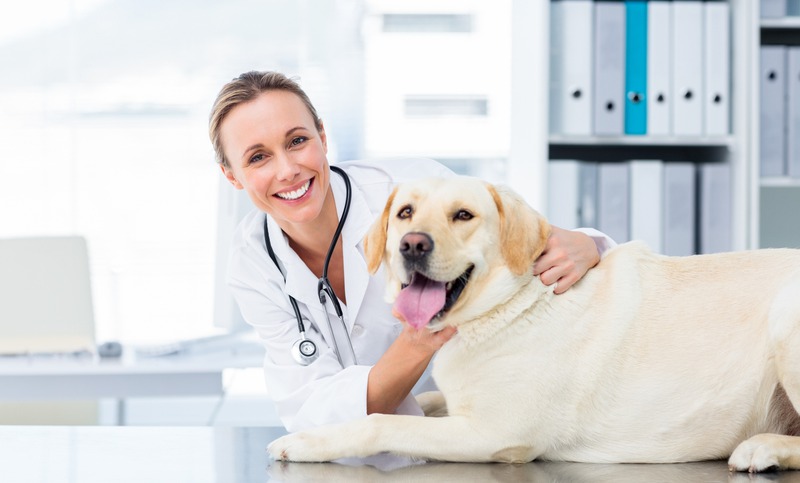As a pet owner, you might often wonder about the significance of annual vaccinations and how they influence your fur baby’s health. When it comes to maintaining your pet’s well-being, keeping up with vaccinations is akin to setting a strong foundation for a sturdy home—essential and non-negotiable. Let’s delve into the world of pet vaccinations and see how they can impact your pet’s annual vet results.
The Protective Shield of Vaccines
Vaccinations play a crucial role in protecting your pet from various infectious diseases. They work by preparing your pet’s immune system to recognize and combat these potential threats, should they ever be encountered in the real world. But what’s the deal exactly with these injections, and why should we keep up with them?
The Role of Vaccinations in Preventing Diseases
Here’s the scoop: When our pets receive a vaccine, they are being exposed to a very small, very safe part of the virus or bacteria. Their immune system kicks into gear, developing antibodies to fight off the intruder. Think of it as a drill for the immune system; the real pathogens haven’t shown up, but the body is getting prepped and ready just in case they do. This means that when your pet encounters the actual disease, their body will recognize it swiftly and spring into action more effectively.
How Vaccines Reflect on Vet Check-ups
When you stroll into your vet’s office for your pet’s yearly dog checkup in Oceanside, the vet will likely thoroughly examine them. They’ll check everything from the tip of their nose to the wag of their tail. But having their vaccination history on hand bolsters their ability to assess your pet’s health.
Basically, vaccinated pets tend to have a decreased risk of contracting contagious diseases, which in turn is reflected in their annual health results. Healthy lungs, clear eyes, and good blood work are often the happy outcomes of a properly immunized pet. A vet can often tell from an exam and lab work if your pet is up-to-date on vaccines based on their overall health and the absence of preventable diseases.
Measuring Immunity with Titers Tests
Speaking of annual vet results, some veterinarians offer titer tests. These are blood tests that measure a pet’s immunity levels to certain diseases, offering insights into whether their vaccinations are still going strong or if a booster might be needed. While not all diseases have a titer test available, they can be helpful for some core vaccines.
Vaccines and the Health Report Card
Every pet parent knows that a healthy pet equals a happy home. And guess what? Vaccinations are an integral part of that equation. When you receive your pet’s health report card from the vet, vaccinations have a hand in many of the positive aspects noted.
-
Long-Term Health: Regular vaccinations mean that your pet is less likely to suffer from the long-term health complications associated with infectious diseases.
-
Vital Signs: A pet’s vital signs are often stabilized through proper vaccination schedules. This leads to better heart rates, temperatures, and respiratory rates, as documented in their results.
-
Behavioral Notes: Did you know that a healthy immunization record could also affect your pet’s behavior? A pet that’s feeling good is more likely to be sociable and active, an observation your vet might note during your annual visit.
Vaccinations can also influence the need for certain treatments. Regularly vaccinated pets may avoid common treatments associated with the diseases that vaccinations prevent, leading to a cleaner and happier bill of health.
Staying Updated with Booster Shots
Vaccinations aren’t a one-and-done deal. These important injections are follow-ups to the initial vaccine series that pets receive when they are younger. Pet booster shots ensure that your pet’s immunity against particular diseases remains strong and effective over the years.
During your pet’s annual check-up, the vet will likely discuss booster shots. It’s vital to understand that these aren’t unnecessary repeats; they’re crucial updates to your pet’s defensive software. Just like a smartphone might need an update to keep functioning well, your pet needs booster shots to stay on top of their health game.
Special Consideration for Pets with Health Issues
It’s worth noting that while vaccines have numerous benefits, they should always be administered by a professional who can properly assess each pet’s health. For pets with certain medical conditions, a vaccination schedule may need to be adjusted. For those furry friends, their annual vet results will be even more crucial in determining the safest way to proceed with vaccinations.
Consulting with the Pros
Suppose you are considering a comprehensive health plan for your pet or want to understand how vaccines fit into their general care. In that case, it’s a great idea to chat with the experts at a reputable clinic like VCA Oceanside. Their insight can be invaluable, providing you with a tailored approach that considers the specific needs and health status of your animal companion.
Informed decisions about vaccinations directly contribute to glowing annual vet results. A professional can guide you on how to navigate any health challenges and optimize your pet’s vaccination schedule for its best overall health outcomes.
Final Thoughts
Vaccinations are essential for your pet’s health, acting like a shield against harmful diseases. Regular shots maintain your pet’s health, reflected in fewer illnesses and more robust immunity. They contribute significantly to your pet’s long-term vitality and wellness. Keeping your pet vaccinated means a happier life for them and peace of mind for you, ensuring your furry friend remains a joyous companion. It’s a simple step with big benefits for your pet’s continued good health.


